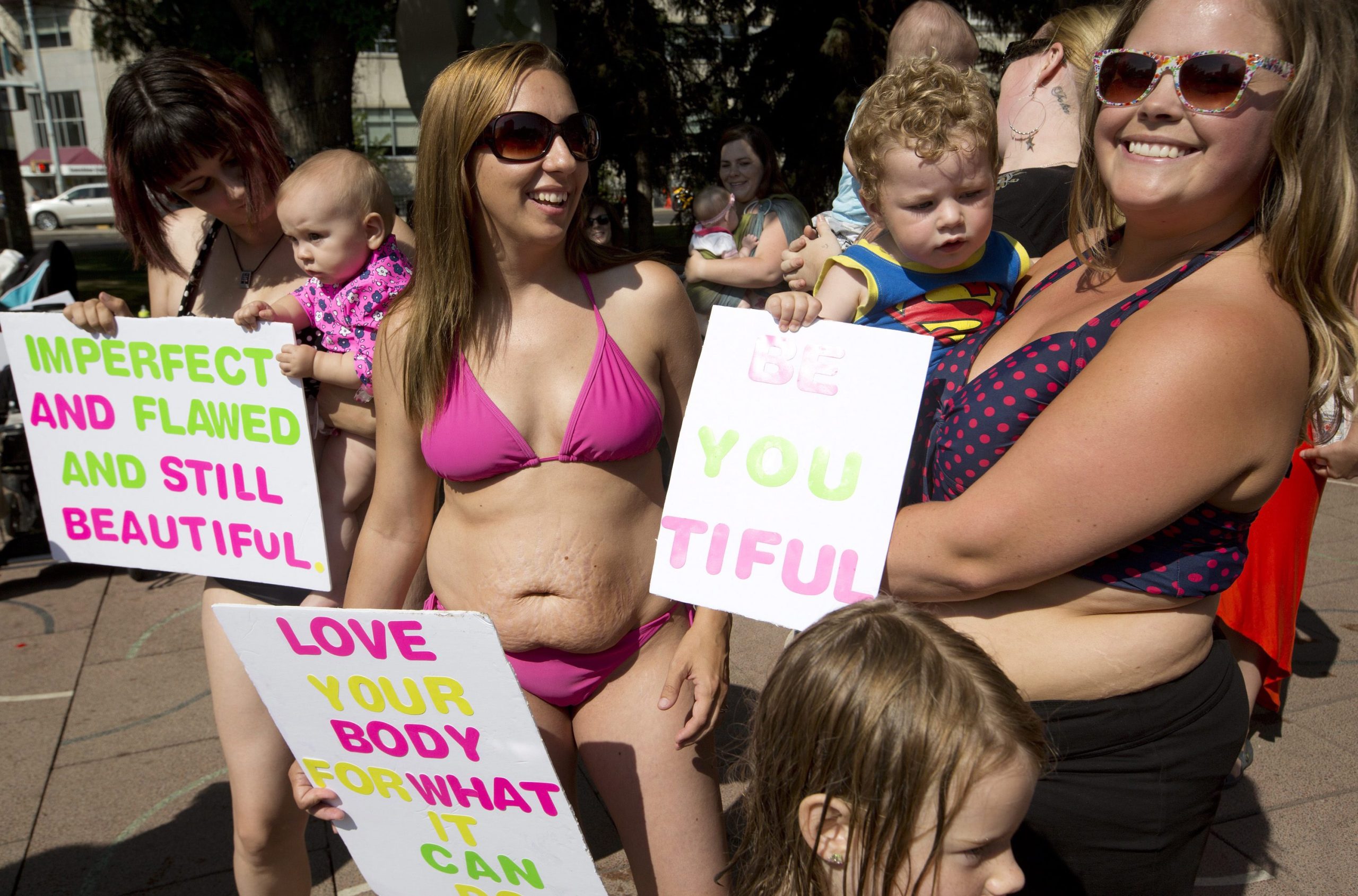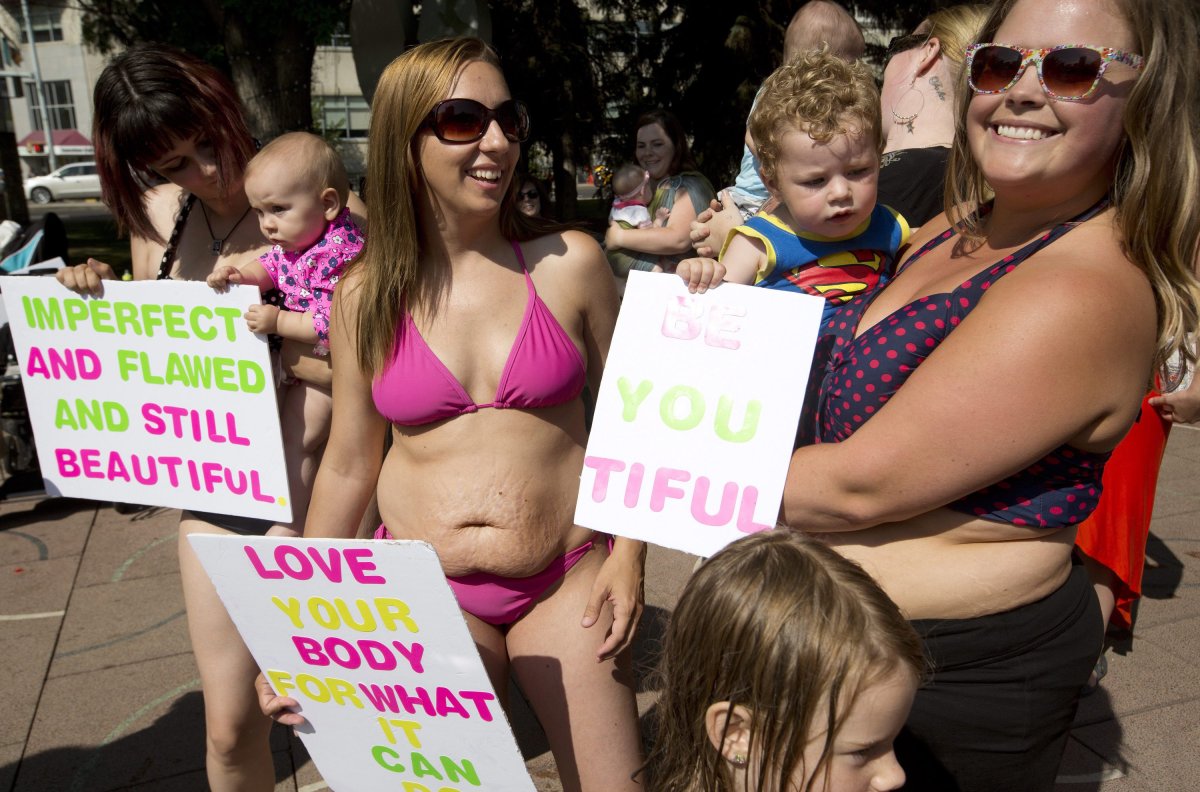
A new trend is going viral on social media: AI-generated videos of people who are overweight in social scenarios where they are causing chaos, seemingly as a result of their size.
Why It Matters
While the 2010s saw body positivity become a mainstay in the cultural lexicon, the 2020s have borne witness to a proliferation of thinness discourse in online spaces—be it through #skinnytok or the increasing ubiquity of weight loss drugs such as Ozempic. The shift has sparked an increase in stigma toward larger people.

AP Photo/The Canadian Press, Jason Franson
What To Know
In one video, shared by the TikTok account @charmbustersofc, a plus-size woman jumps off a diving board into the sea and causes a ripple of splashes so gigantic that boats capsize. The video has been viewed 4.1 million times.
Plus-size people capsizing boats is a common theme in this content. One AI-generated video of a woman jumping off a boat and capsizing it has been viewed 414 million times on Instagram alone. That same account also posted a video of a plus-size ice skater crushing a smaller one.
Another video posted by the account @aiiscursed shows an overweight monster walking through a store, and the TikTok account @obeseverseoriginal is seemingly dedicated to showing AI-generated overweight depictions of classic superhero characters such as Batman and Superman.
Newsweek spoke with Heather Widdows, the author of Perfect Me and a professor of philosophy at the University of Warwick in England. “There is a fascination with fatness—something we fear and revile—and far more than is justified by any concern for health,” she said.
“As appearance becomes more important in our culture, failing to make the grade is to fall outside what’s acceptable. Fatness represents what’s not OK, what we don’t want to be, something almost alien,” Widdows added.
The most recent Vogue Business size-inclusivity report, published in March, said size inclusivity had declined once again—continuing a trend seen in other recent seasons.
The report—analyzing Fashion Weeks across New York, Milan, London and Paris this year—said, “Of the 8,703 looks presented across 198 shows and presentations, 97.7 percent were straight-size (U.S. 0-4), 2 percent were midsize (U.S. 6-12) and 0.3 percent were plus-size (U.S. 14+).”
This isn’t the first AI trend of its kind. In March, a TikTok filter referred to as an AI “chubby” filter, allowed users to edit photos of themselves to look larger, causing outrage on the platform until it was removed.
TikTok also banned #skinnytok, which critics said was promoting extreme thinness. The platform blocked searches for the hashtag in June and now directs users to mental health support resources.
The response to these videos has been mixed, with some social media users filling the comments sections with laughing emoji while others point out that the videos use AI.
However, the reaction to the types of bodies in the videos is clearer. One social media user wrote: “Never having a McDonald’s again. lol.” Another commented, “Some thing to remind you to weigh your passengers before taking risks like this.”
Widdows said: “The people posting these fat posts think it’s OK to laugh because, hey, it’s only pretend fat people. The same people probably wouldn’t think it’s OK if it were their grandma or someone’s grandma.”
“But it sends a message that it’s OK to laugh at fat people,” she continued. Widdows added that this “implies that fat people are fair game—they can be blamed and shamed. Fat-shaming is often treated as if it’s acceptable, though we know it cuts deep and has impact that is at least as harmful as other forms of discrimination.”
What People Are Saying
Heather Widdows, a professor of philosophy at the University of Warwick, told Newsweek: “The thin-ideal is globally powerful and dominant and with the other three features of the beauty ideal—firmness, smoothness and youth—is a powerful taskmaster. We want to be thin—in the right way, with curves in the right places—and we fear not being, of ‘letting ourselves go.’ Fat-shaming says as much about the shamer as the shamee. It says: ‘I’m afraid of being fat. I care about thinness.'”
What Happens Next
It remains to be seen whether social media platforms will regulate this content.




